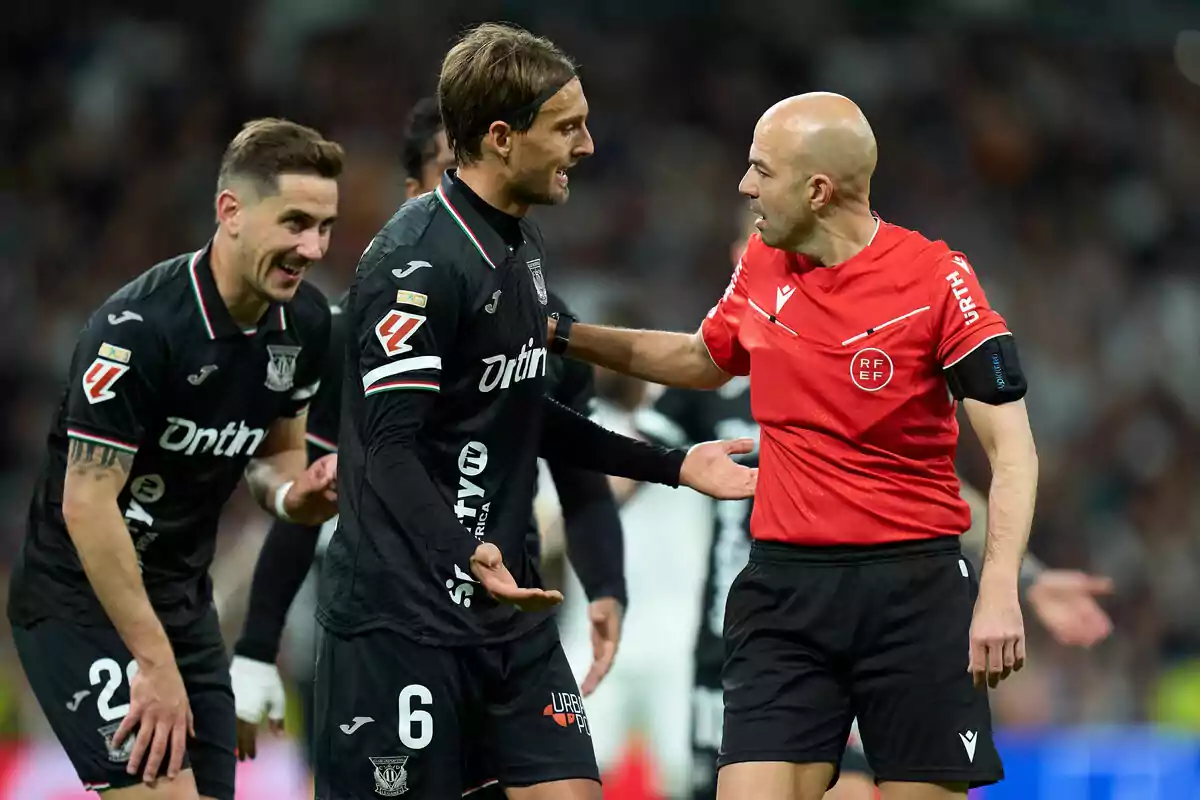The refereeing by González Fuertes in the Real Madrid-Leganés match, held at Santiago Bernabéu, has sparked significant controversy. Two key decisions by the Asturian referee caused a wave of criticism that could have important consequences for his future in the elite of Spanish refereeing.
Controversial Decisions
The first controversial play took place in the first half when González Fuertes awarded a penalty in favor of Real Madrid. The incident occurred when Óscar Rodríguez touched Arda Güler in the area. While it is true that there was contact, many believe it was not enough to warrant a penalty.
According to sources consulted by Mundo Deportivo, the VAR should have intervened, but the system did not consider it a clear action to review. This increased the frustration among fans and Leganés, who saw Madrid take the lead on the scoreboard.

The second play that sparked debate occurred in the second half when Renato Tapia committed a foul on Rodrygo. The play led to the free kick that resulted in Madrid's third goal, scored by Mbappé.
Although Tapia touched the ball, his other leg swept Rodrygo, which for many is a clear foul. However, according to the same sources, this action was not within the VAR protocol, which made its intervention impossible. Thus, the goal was validated without major objections.
González Fuertes's Last Match at the Bernabéu?
The big question now is whether this will be González Fuertes's last match at Santiago Bernabéu. The 44-year-old Asturian referee will turn 45 on June 8, an age at which many referees retire. Previously, referees retired at 45, but Velasco Carballo eliminated that rule.
This was the first and possibly last match for González Fuertes at the Bernabéu, as he might not be appointed for more. The controversy over his refereeing could have sealed his fate in the elite of Spanish refereeing.
Looking to the Future
Despite there being no formal age limit for referees, González Fuertes's future could be affected by this controversial performance. The CTA, under the presidency of Velasco Carballo and now with his successor, has the final say on refereeing appointments. While referees must act impartially and within the framework of the rules, controversial decisions can influence public perception and future appointments.
The widespread criticism of his refereeing in the Real Madrid-Leganés match could lead the Asturian referee to face a more rigorous evaluation. Elite referees must be competent in their decisions and handle complex situations calmly under pressure.

